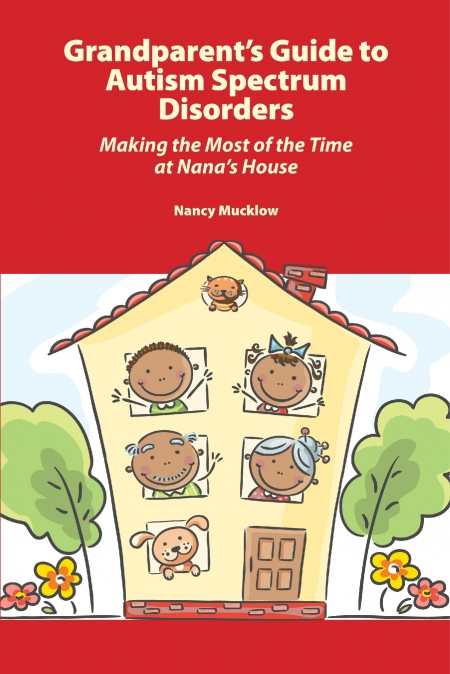Grandparent's Guide to Autism Spectrum Disorders
Making the Most of the Time at Nana's House
One child in eighty-eight is now recognized as having an autism spectrum disorder (ASD), according to the latest estimates from the Centers for Disease Control and Prevention’s Autism and Developmental Disabilities Monitoring Network. Given this high rate of diagnosis, the medical system has become practiced at offering resources and interventions to parents of children with autism.
In her most recent book, Nancy Mucklow addresses another group affected by the prevalence of ASDs: the extended family. In Grandparent’s Guide to Autism Spectrum Disorders, Mucklow offers advice written especially for grandparents who want relationships with their grandchildren but don’t know how to accommodate the needs of a child with an ASD.
Mucklow writes like a teacher who wants to inform and engage her audience, which is not surprising given her advanced degrees in journalism and education. She offers clear explanations of complex topics like autism, Asperger’s Syndrome, and sensory processing disorders. Mucklow uses a variety of approaches to connect with readers, including information boxes that answer common questions, illustrations that highlight important instructions, and plenty of anecdotes that encourage empathy.
“See the child, not the diagnosis,” Mucklow implores. She makes this easy by providing frequent, brief vignettes that feature real moments in real families. While her bulleted lists of quick tips—create a comfort bag, provide mouth toys, etc.—are helpful on their own, it is these family stories that can truly help deepen understanding.
For example, Mucklow takes readers to the grocery store with the grandparents of Raj, who is crying and screaming in the aisle, his meltdown brought on by overstimulation in the noisy, colorful, motion-filled store. When his grandma whips out the licorice for Raj to chew on and hands him a ball to squeeze, readers see Mucklow’s tools in action. Raj is able to regulate himself, the meltdown ends, and Raj’s trusting relationship with his grandparents remains intact.
Mucklow’s guide for grandparents covers a lot of territory in a friendly, easy-to-read style, including the emotional, social, and intellectual aspects of ASDs. She dispenses with obscure medical explanations, forgoing jargon for plain English. This direct, real-world approach reassures readers that they can understand children with ASDs, and that there are concrete actions they can take to create an atmosphere that promotes healthy and happy connections with their grandkids.
Reviewed by
Sheila M. Trask
Disclosure: This article is not an endorsement, but a review. The publisher of this book provided free copies of the book and paid a small fee to have their book reviewed by a professional reviewer. Foreword Reviews and Clarion Reviews make no guarantee that the publisher will receive a positive review. Foreword Magazine, Inc. is disclosing this in accordance with the Federal Trade Commission’s 16 CFR, Part 255.

